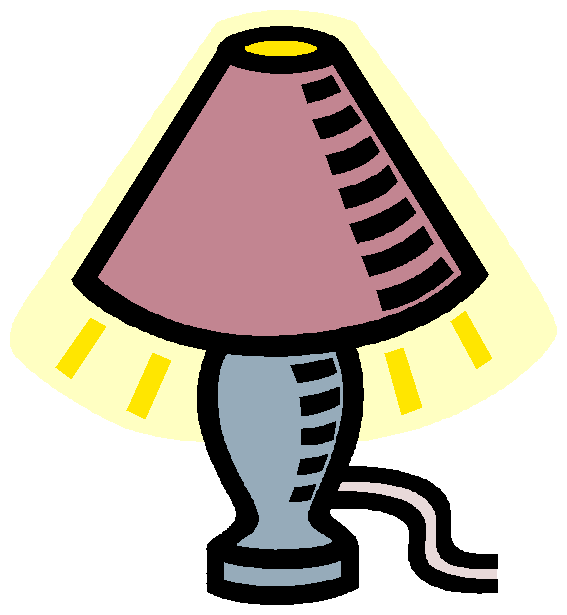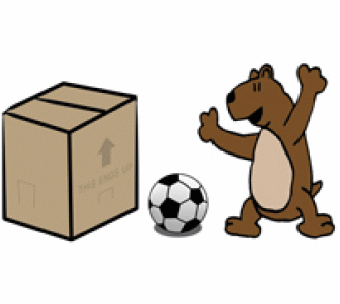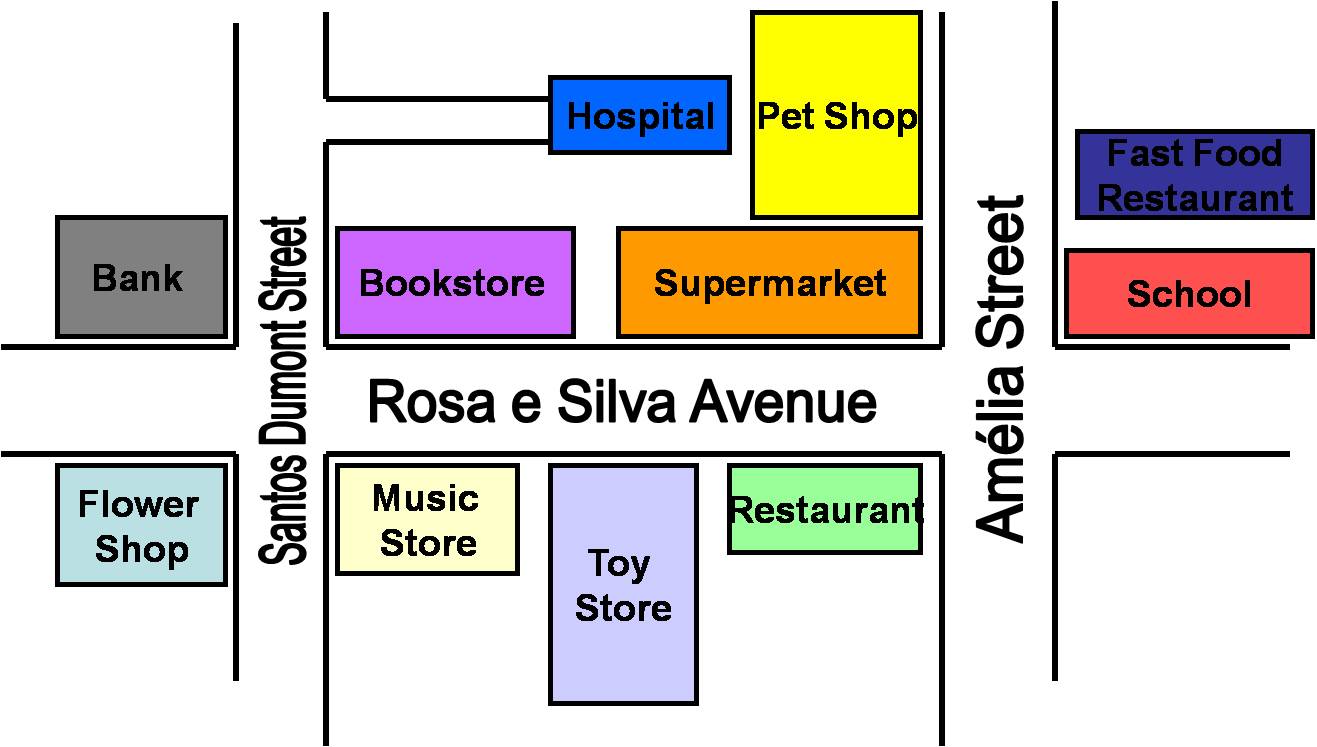O passado simples (past simple ousimple past) é o tempo equivalente ao pretérito perfeito do indicativo, indicando uma ação já concluída.
 A maioria dos verbos em inglês é dividida entre verbos regulares(regular verbs) e verbos irregulares(irregular verbs). Os irregulares são os verbos que não são conjugados da mesma maneira que os regulares e para os quais não existe uma regra geral; para cada verbo irregular há uma regra.
A maioria dos verbos em inglês é dividida entre verbos regulares(regular verbs) e verbos irregulares(irregular verbs). Os irregulares são os verbos que não são conjugados da mesma maneira que os regulares e para os quais não existe uma regra geral; para cada verbo irregular há uma regra.
Os verbos regulares recebem o acréscimo de -ed ao infinitivo para formar o passado simples (simple past) e o particípio passado (past participle). Em alguns verbos, é necessário seguir algumas regras antes de acrescentar o sufixo -ed, de acordo com a terminação do verbo (infinitivo):
- Verbos terminados em E: acrescente apenas -d.
Exemplo: to free → freed
- vogal + y: acrescente -ed.
Exemplo: to play → played
- consoante + y: elimine o Y e acrescente -ied.
Exemplo: to dry → dried
- consoante + vogal tônica + consoante: repita a consoante final e acrescente -ed.
Exemplo: to plan → planned
Nos demais verbos, permanece a regra de simplesmente acrescentar o sufixo -ed.
FORMA NEGATIVA:
Exemplos:
I did not stop here yesterday.
Eu não parei aqui ontem.
This table was not here yesterday.
Esta mesa não estava aqui ontem.
FORMA INTERROGATIVA:
Exemplos:
Did I stop here yesterday?
Eu parei aqui ontem?
Was he a painter five years ago?
Ele era pintor cinco anos atrás?
What did she buy at the mall?
O que ela comprou no shopping?fonte: wikbooks
Verbos irregulares são aqueles que não obedecem às regras normais de conjugação, ou seja, à adição de -ed ao final para a conjugação dos tempos passado e particípio.
Exemplos
Um exemplo de verbo regular é o verbo to talk. Tanto no particípio quanto no passado, a conjugação do verbo é talked (talk + ed).
Já como exemplo de verbo irregular, temos o verbo to begin. Conjugado no passado, o verbo assume a forma began; no particípio, begun.
Exceções
Vale ressaltar que alguns dos verbos irregulares têm também formas regulares. Essa diferença acontece pelas diferenças de conjugação no inglês britânico e estadunidense. Os verbos em que isso ocorrer estarão marcados, na tabela abaixo, por asteriscos.
Fotos: já começaram as aulas da Oficina de Produção Artística. turma III. É bem provável que nova turma seja formada devido ao número de solicitações.
Lista com os verbos irregulares mais comuns
INFINITIVE (INFINITIVO)
|
PAST SIMPLE (PRETÉRITO SIMPLES)
|
PAST PARTICIPLE (PARTICÍPIO)
|
TRADUÇÃO
|
|
|
|
|
to arise
|
arose
|
arisen
|
surgir, elevar-se
|
to be
|
was/were
|
been
|
ser, estar
|
to bear
|
bore
|
born/borne
|
levar, suportar, dar à luz
|
to beat
|
beat
|
beaten
|
bater, derrotar, pulsar
|
to become
|
became
|
become
|
tornar-se
|
to begin
|
began
|
begun
|
começar, principiar
|
to behold
|
beheld
|
beheld
|
ver, observar
|
to bend
|
bent
|
bent
|
curvar(se), inclinar
|
to bet
|
bet
|
bet
|
apostar
|
to bid
|
bade
|
bidden
|
ordenar, saudar
|
to bid (2)
|
bid
|
bid
|
fazer uma oferta
|
to bind
|
bound
|
bound
|
ligar, encadernar, contratar
|
to bite
|
bit
|
bitten
|
morder, picar
|
to bleed
|
bled
|
bled
|
sangrar
|
to blow
|
blew
|
blown
|
soprar, tocar instrumento a sopro
|
to break
|
broke
|
broken
|
quebrar, interromper
|
to breed
|
bred
|
bred
|
criar, educar
|
to bring
|
brought
|
brought
|
trazer
|
to broadcast
|
broadcast
|
broadcast
|
emitir, radiofonizar
|
to build
|
built
|
built
|
construir
|
to burn
|
burnt/burned
|
burnt/burned
|
queimar
|
to burst
|
burst
|
burst
|
explodir, irromper
|
to buy
|
bought
|
bought
|
comprar
|
to cast
|
cast
|
cast
|
arremessar, atirar, calcular
|
to catch
|
caught
|
caught
|
agarrar, apanhar
|
to choose
|
chose
|
chosen
|
escolher
|
to cling
|
clung
|
clung
|
aderir, unir-se
|
to come
|
came
|
come
|
vir, chegar, aproximar-se, acontecer
|
to cost
|
cost
|
cost
|
custar
|
to creep
|
crept
|
crept
|
rastejar, arrastar-se
|
to cut
|
cut
|
cut
|
cortar
|
to deal
|
dealt
|
dealt
|
negociar, distribuir, tratar
|
to dig
|
dug
|
dug
|
cavar
|
to do
|
did
|
done
|
fazer, executar, efetuar
|
to draw
|
drew
|
drawn
|
desenhar, puxar, arrastar
|
to drink
|
drank
|
drunk
|
beber, embriagar-se
|
to drive
|
drove
|
driven
|
guiar, impelir
|
to eat
|
ate
|
eaten
|
comer
|
to fall
|
fell
|
fallen
|
cair
|
to feed
|
fed
|
fed
|
alimentar (se), suprir
|
to feel
|
felt
|
felt
|
sentir
|
to fight
|
fought
|
fought
|
lutar, combater
|
to find
|
found
|
found
|
achar, encontrar
|
to flee
|
fled
|
fled
|
fugir de, escapar
|
to fling
|
flung
|
flung
|
arremessar (se), lanchar
|
to fly
|
flew
|
flown
|
voar
|
to forbid
|
forbade
|
forbidden
|
proibir
|
to forget
|
forgot
|
forgotten
|
esquecer (se)
|
to forgive
|
forgave
|
forgiven
|
perdoar
|
to freeze
|
alfroze
|
frozen
|
gelar, congelar
|
to get
|
got
|
got/gotten
|
ganhar, obter, conseguir, adquirir
|
to give
|
gave
|
given
|
dar, conceder
|
to go
|
went
|
gone
|
ir
|
to grow
|
grew
|
grown
|
crescer, cultivar fonte:colegioweb
|
















 font:englishexercises.org
font:englishexercises.org






